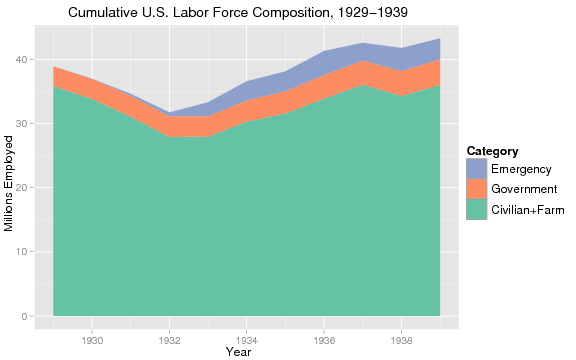The Online Photographer reports that the firm of Franke and Heidecke is going out of business – perhaps permanently. That’s very sad news, for they are the firm that launched the famous Rolleiflex brand in 1929. As it happens, I bought a 1932 Rolleiflex Standard that I bought in a junk shop in Wales last year. I’d actually seen it a year before. The owner had spotted me with a camera and asked me whether I was interested in the Rollei. At the time I declined, but regretted it as I thought back to the beauty of the image in its ground-glass screen. So I was amazed, when I went back, to find it still unsold and snapped it up. I keep meaning to write a post about what you could, pretentiously, call the “phenomenology of technology”. The Rollei feels so different to a modern digital camera: since it is a twin-lens reflex, you hold it at waist level and look downwards; like other film cameras you don’t get the instant satisfaction of digital – you have to wait and see what came out; and since you have a mere 12 shots on 120 medium format film, you can’t just snap away and select for the best. There’s also the fact that is is a superbly made object. How many other machines made in 1932 still work, and work pretty well. Vorsprung durch Technik, I suppose. Here’s a photograph I made with it:
From the category archives:
History

A few summers ago we were having our house appraised. I opened the door to the appraiser who took a step back, blinked, and then stared rudely at me for about 30 seconds. Then “Oh, you’re English”, he says. (The tip-off being the large picture on my T-Shirt of Zebedee saying “Time for Bed”). He was from a Yorkshire mining community; his father and brothers had both been miners but he was too young himself; his brother (somehow) came to the US to become a hairdresser, and my appraiser followed a few years later.
There’s probably a dissertation to be written about the migration of participants in the Miner’s Strike to the US. A BBC exec chased down the two protagonists in this wonderful Don McPhee photo, and although the miner in the picture (George Brealey) died in Edington some years ago, the copper who you can see trying unsuccessfully to suppress a smile now lives in Tennessee. Full story here. And, if it works, a gallery of McPhee’s pictures (they’re all great, but #4 of the kids being evacuated, and #6 of Wilson lighting his pipe, are fantastic). (Hat-tip, Chris, who thought this was more down my alley than his).
Over on the Edge of the American West, Eric has been working up some graphs on what the WPA spent its money on. Data visualization nerdery is below the fold. The rest of you can go back to your pie charts, whether in honest ignorance or a spirit of desperate contrarianism.
I’m so far behind on this one. Here’s a figure based on a table Eric sent me.

There is a PDF version. There is also a 4-category version (with a PDF too), that breaks out farm workers from the main category.
When I first started going out with my partner Pauline, in the early 1980s, I had a somewhat dismal opinion of Liverpool. She wanted to show me how great the city could be, so she insisted on taking me to the Palm House in Sefton Park. I rather vividly remember how distressed she was to find that the beatiful structure of her childhood was derelict and vandalized. My father, whose mother came from the city often recalls a visit just after the war, to a city that was incomparably exciting. He remembered the overhead railway, the buses, the underground – a place alive.
That Liverpool is the subject of Terence Davies’s wonderful poetic treatment, “Of Time and the City”:http://www.imdb.com/title/tt1232790/ (“Official site”:http://www.oftimeandthecity.com/index.php ). He takes the city of empire, of shipbuilding and docks, of sport, of children playing on working-class streets — the city of his childhood — and traces its decline and collapse through the 1970s and 1980s. At the same time, he indicates, through music — especially his use of Mahler’s 2nd — that there is life yet and the possibility of return. It is hard to give a flavour of the combination of image, music, poetry and personal recollection that Davies conveys, but he tells us of a place that is badly damaged but still has immense weight and grandeur (aptly evoked in his shots both of industrial landscape and of great Victorian buildings like St George’s Hall). Of course it is a film that will mean most to those from the city, perhaps especially the legion of exiled scousers. But it said a lot to me, with a more episodic connection, and even those who only know it from a distance will love Davies’s work. Get to see it if you possibly can.
Via Cosma, Canadian historian Rob MacDougall on a characteristic American tendency to see radical social change as the inevitable expression of values expressed and promises made at the country’s inception:
“We’ve come to our nation’s capital to cash a check,” said Martin Luther King Jr. at the March on Washington for Jobs and Freedom. … King went on: “When the architects of our republic wrote the magnificent words of the Constitution and the Declaration of Independence, they were signing a promissory note … a promise that all men, yes, black men as well as white men, would be guaranteed the inalienable rights of life, liberty and the pursuit of happiness.”
And here Sancho [Panza] or Sacvan [Bercovitch] whispers to the guy standing next to him, “Were they? Really? If we went back in time and asked the architects of the republic–Jefferson and Madison and Washington and the rest–did you mean for this to apply to your slaves too, would they agree? … Because it would have saved a lot of trouble if they’d spelled all this out in 1789.”
The black belt rhetorical jiu jitsu of the “I Have A Dream” speech is that King pulls it off. He convinced the better part of a nation that dismantling segregation was not so scary, not so radical, but really what they’d all meant to do all along. They just hadn’t gotten around to it, like the laundry I need to sort, or those slaves Jefferson never quite got to freeing. … And this is an old and hallowed American trick. On July 4th, 1852, Frederick Douglass blistered the ears of his white audience with prophesy … Douglass reveals that, “interpreted as it ought to be interpreted,” the Constitution is in fact “a GLORIOUS LIBERTY DOCUMENT.” He embraces and celebrates the Constitution as a bulwark against slavery. … At Seneca Falls in 1848, Elizabeth Cady Stanton cribbed Jefferson’s words for her Declaration of Rights and Sentiments, the intimation being that “of course” the patriarchs of 1776 must have intended equal rights for women. … And so on and so on down through history, with every kind of American reformer looking backward to move forward, couching their goals as nothing more radical than America’s alleged founding ideals.
“Miriam Burstein”:http://littleprofessor.typepad.com/the_little_professor/2008/10/halloween-blogging-2008-residents-of-madame-tussauds-chamber-of-horrors-in-the-late-nineteenth-century.html provides an annotated and hyperlinked list of the murderers modelled in the Victorian version of Madame Tussaud’s Chamber of Horrors, taken from the 1886 Tussaud’s guidebook.
Though it may have seemed impossibly far off in our hazy youth, these days we fondly look back at the turn of the 21st century and think that was when the world was new and fresh and everything seemed possible. Or searchable, anyway. For one month only, here is Google’s index, c. 2001. It shows that we were present individually though not collectively. Besides nostalgia for this distant past, consider the results of searches such as “housing bubble” or “subprime mortgage lending” or “counterparty risk.”
Jim Henley “writes”:http://highclearing.com/index.php/archives/2008/09/05/8647 :
bq. Oh by the way: “Country First” is a fascist idea. There ought to be a fairly large number of people, things and groups that are more important to you than your “country.”
Well, as a Brit, I oughtn’t to intrude, but I can report that within seconds of reading Jim’s post, a certain Woody Guthrie song was going through my head …..
“Beware Finland” jokes Matt Yglesias in a post about education policy. But, frankly, this is good geopolitical advice. Just ask the Soviets. Or consider the following statistics.

I’d watch out for them, if I were you.
Having handed in my tenure file, and gotten my book accepted (yay!), I’m now, for the first time in years, in a place where I can think about doing some really serious reading outside the topics of my research, while I wait for the results to come in on the first, and do copy preparation on the second. So I’m in the market for good books about American politics, society, and history to fill in some of the holes in my knowledge of same as a non-US native. What I’m looking for are interesting, intellectually rich, accounts of American politics, preferably with a minimum of boosterism. Less Doris Kearns Goodwin then, than _The Boys on the Bus._ I’m interested both in academic books with a general appeal and good popular histories with intellectual bite. I’m also happy to entertain suggestions for good fiction that touches on these subjects – first on my list is Peter Mathiessen’s “Shadow Country”:http://www.amazon.com/gp/redirect.html?ie=UTF8&location=http%3A%2F%2Fwww.amazon.com%2FShadow-Country-Modern-Library-Matthiessen%2Fdp%2F0679640193%3Fie%3DUTF8%26s%3Dbooks%26qid%3D1215537418%26sr%3D8-1&tag=henryfarrell-20&linkCode=ur2&camp=1789&creative=9325 (I read one of the books that it’s based on, _Killing Mr. Watson_, years ago, and loved it). So please submit recommendations in comments. Up before I start on this list, I hope, my reviews of John McGowan on American liberalism and Dan Solove on reputation and the Internet.
My colleague Lane Kenworthy reviews Rick Perlstein’s Nixonland, proving in the process that he is a faster reader (and writer) than me.
Is Perlstein right about what happened during these years? Did America harden into two warring camps? I think an argument can be made that something very different occurred: the developments of the 1960s coupled with (and accentuated by) Nixon’s political tactics opened up new fissures that left the political landscape not more crystallized, but more clouded. Instead of shifting from (more or less) one America to two, the shift was, arguably, toward a greater multiplicity of political identities that the two political parties had to struggle mightily to try to shape into manageable coalitions.
More at Lane’s.
In Plato’s Symposium, Alcibiades compares Socrates to ‘those busts of Silenus you’ll find in any shop in town’. You ‘split them down the middle’ and figures of gods are inside.
Obviously this is going to be something like a Russian nesting doll. Maybe exactly like one. I have seen a lot of Greek art and artifacts. I’ve seen, for example, drinking cups that are ugly Silenus on one side, beautiful Dionysus on the other. But I’ve never seen an ancient Greek Silenus nesting doll. Have you? What, exactly, were they like? Which gods were inside? Surely just Dionysus. If they were available in every shop, at least a few should have survived. Popular craft forms don’t usually just blink out of existence. They evolve down the centuries So where can I see one?
A few years back, Kieran “wrote about”:https://crookedtimber.org/2004/02/04/walking-to-school/ how Schelling type tipping point arguments have often been used to ‘explain’ patterns of racial segregation.
bq. lovely as these models are, we know empirically that many phenomena that can be formulated as tipping processes do not, in fact, happen in that way. Neighborhood racial segregation, for instance, has historically been actively enforced and collectively sustained, and is not simply the unpleasant byproduct of innocuous choices. Similarly, social movements that successfully propagate ideas or initiate collective action tend not to rely on contagion but are usually very well organized.
I was reminded of this when I read Rick Perlstein’s “post”:http://www.ourfuture.org/blog-entry/meaning-box-722 on how neighborhood segregation was enforced in post-war Chicago.
bq. You could draw a map of the boundary within which the city’s seven hundred thousand Negroes were allowed to live by marking an X wherever a white mob attacked a Negro. Move beyond it, and a family had to face down a mob of one thousand, five thousand, or even (in the Englewood riot of 1949, when the presence of blacks at a union meeting sparked a rumor the house was to be “sold to niggers”) ten thousand bloody-minded whites. In the late 1940s, when the postwar housing shortage was at its peak, you could find ten black families living in a basement, sharing a single stove but not a single flush toilet, in “apartments” subdivided by cardboard. One racial bombing or arson happened every three weeks…. In neighborhoods where they were allowed to “buy” houses, they couldn’t actually buy them at all: banks would not write them mortgages, so unscrupulous businessmen sold them contracts that gave them no equity or title to the property, from which they could be evicted the first time they were late with a payment.
Rick argues in _Nixonland_ that anxieties about open housing were one of the main reasons that so many white ethnics turned Republican. The post uses letters from constituents to Senator Paul Douglas to back up this claim. Go read.
Nearly five years ago (it’s a bit terrifying to think how long I’ve been blogging here), I wrote a “post”:https://crookedtimber.org/2003/10/15/indexing-as-artform/ on the artistic, humorous and malicious uses of book indexes. Now this bit from the _LRB_ describing Hugh Trevor Roper’s revenge on his Cambridge college.
bq. Trevor-Roper had taken the title of Lord Dacre of Glanton, and had left the Regius Professorship of Modern History at Oxford for the mastership of Peterhouse, the oldest and most conservative college in Cambridge. His years at Peterhouse (from 1980 to 1987) were far from happy. An ultra-reactionary caucus attempted to frustrate the master’s attempts – however cautiously liberal – to reform the college. …As it happened, the doings of 17th-century Peterhouse featured in the splendid collection of essays he published in the year of his retirement, Catholics, Anglicans and Puritans. The index entry for ‘Cambridge Colleges, Peterhouse’ betrayed uncanny parallels, some believed, with Trevor-Roper’s perception of its members in the 1980s: ‘high-table conversation not very agreeable . . . four revolting fellows of; main source of perverts’. Just as admirers of his hero Gibbon often head straight for the footnotes, so the first port of call for connoisseurs of Trevor-Roper is the index.
